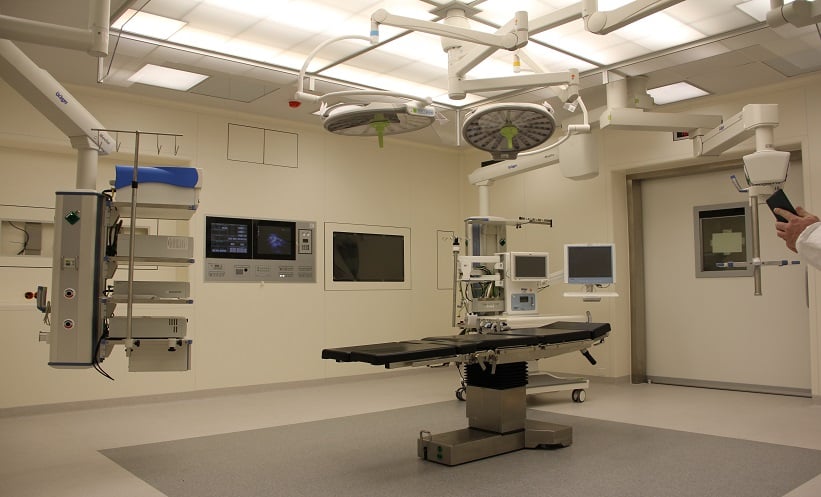ROBOTIC liver resection has better perioperative tolerability compared to open liver resection, according to a new cohort study. Due to the risk of liver decompensation, many patients are excluded from treatment, and robotic liver resection would expand the number of patients who are able to be treated, as the minimally invasive technique may lower the risk of conversion to open resection for complex hepatectomies. While robotic surgery has shown benefits compared to laparoscopic surgery, the long-term oncologic outcomes of the surgery are still debated, and its costs are high.
Author Fabrizio Di Benedetto, University of Modena and Reggio Emilia, Italy, and colleagues, examined data from 398 patients who had undergone an open liver resection or robotic liver resection from 1st January 2010–30th September 2020. In total, 106 patients who underwent an open resection were matched to 106 patients who had robotic surgery. For robotic surgery, the Xi or da Vinci Si platforms were used. While the duration of surgery was longer (295 versus 200 minutes), robotic surgery led to shorter stays in hospital (4 days versus 10 days), and fewer ICU admissions (6.6% versus 19.8%). Furthermore, robotic surgery had a lower incidence of liver failure (7.5% versus 28.3%), and did not lead to grace C liver failure.
While the postoperative complication rates, overall survival at 90 days, and tumour recurrence-related mortality at 24 months were similar in the two groups, the risk of severe complications was higher in patients who had an open resection (11.3% versus 2.8%), and overall survival at 24 months was better in the group that had a robotic resection (86.9% versus 83.8%). There were no differences in quantity of packed red blood cells units transfused or blood transfusions. Overall, 3.2% of robotic procedures required an intraoperative conversion to an open resection.
Limitations of the study included the non-randomised, retrospective study design. The cost of robotic surgery is still higher than open resections; however, the researchers pointed out that the reduction in hospitalisation by 6 days, as well as the reduction in severe complications and ICU admissions, reduce the costs for the hospital significantly.








